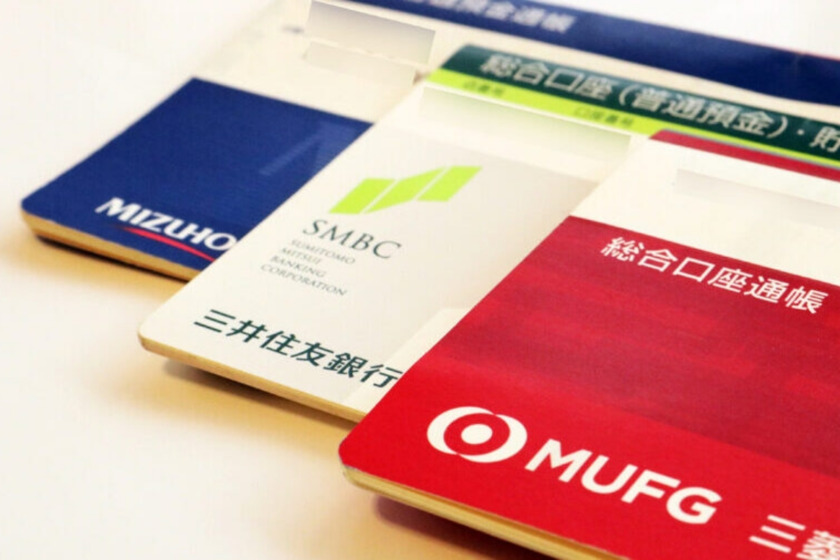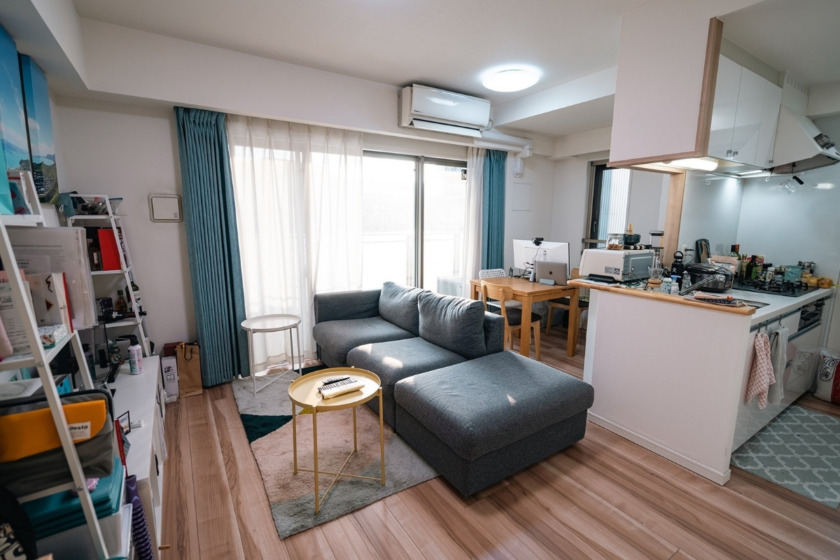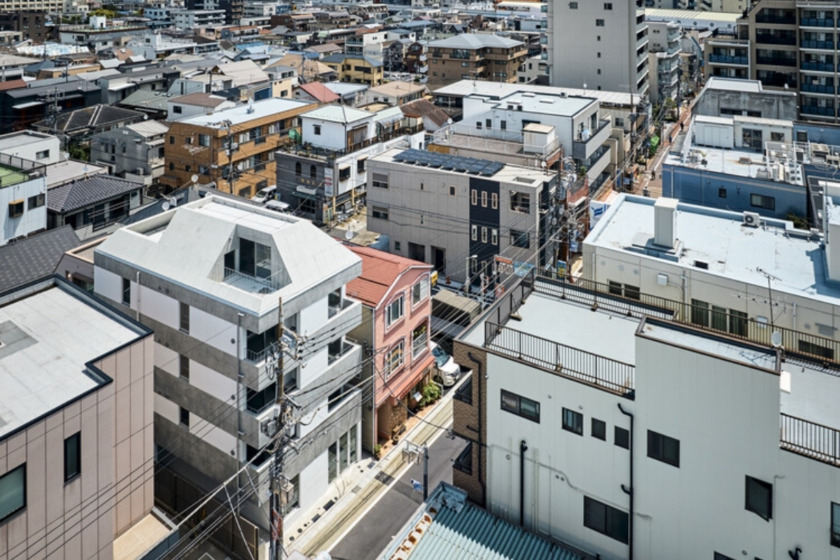Welcome to Japan! The excitement of a new beginning, whether for work, study, or family, is truly exhilarating. However, after the initial thrill of finding your perfect home, the practicalities of setting up your new life in Japan guide can feel like a labyrinth of paperwork and unfamiliar processes.
From securing a phone number to opening a bank account and navigating local registrations, these essential steps are crucial for establishing a comfortable and compliant existence. This comprehensive life in Japan guide aims to simply outline these critical first steps. At Momo Estate, we understand these challenges and are here to provide the support that makes your initial experience smooth and truly stress-free.
Your first steps in Japan: Essential registrations
Upon arrival in Japan, and after securing your residence, a few vital administrative tasks await you at your local city hall. These initial registrations are fundamental to legal living in Japan and accessing essential services. Don’t let the bureaucracy intimidate you; understanding these steps will make the process much more manageable.

Residence Card & City Hall notification:
Your Residence Card (在留カード, Zairyu Card) is the cornerstone of your legal status in Japan. Upon entry, it’s usually issued at the airport, or you’ll receive a stamp in your passport to get it later. Within 14 days of moving into your permanent residence, you must take your Residence Card to your local municipal office (city hall/ward office, 市役所 shiyakusho or 区役所 kuyakusho) to register your address.
This is a mandatory step that validates your legal residency. You’ll fill out a simple moving-in notification form (tennyu todoke). If you don’t speak Japanese, bringing a Japanese-speaking friend or utilizing translation support can help make this process remarkably smooth. This registration is paramount for almost all subsequent procedures in your life in Japan guide.
Understanding your number card:
Shortly after registering your address, you will receive a notification of your Individual Number (個人番号, Kojin Bangō), commonly known as your My Number, in the mail. This 12-digit number is unique to you and is used for social security, tax, and disaster response purposes. While the notification itself isn’t a card, you can later apply for a My Number Card, which is a physical IC card with your photo, making it a convenient form of ID. It’s not compulsory to get the card, but it can simply streamline various administrative procedures. Remember, your My Number is highly confidential, so treat it with respect.
National health insurance: A must-have:
Enrollment in Japan’s National Health Insurance (国民健康保険, Kokumin Kenko Hoken) is compulsory for all residents, including foreigners, who are not covered by their employer’s social insurance scheme. This crucial system ensures that medical costs are affordable, as you typically pay only 30% of your medical bills. You can apply for National Health Insurance at the same city hall where you registered your address. The process involves filling out an application form and providing your Residence Card. Once enrolled, you will receive your health insurance card, which you must present at hospitals and clinics. This provides crucial support for your health safely while living in Japan.
Staying connected: SIM card & internet setup
In Japan, having a functional phone number and reliable internet connection is more than just convenience; it’s a necessity for almost every aspect of daily life, from making appointments to receiving deliveries and even open a bank account in Japan. Navigating the options for buying a SIM card in Japan and setting up home internet can be confusing, but a clear understanding will make the process simply and stress-free.

Choosing your SIM Card: Options for foreigners:
When it comes to getting a Japanese phone number, foreigners typically have several options:
- Major Carriers (Docomo, au, SoftBank): These offer robust networks and comprehensive services, but often require a long-term contract (typically 2 years), a Japanese bank account, and a Residence Card valid for a certain period (e.g., 6 months or more). Their plans can be more expensive.
- MVNOs (Mobile Virtual Network Operators, e.g., Rakuten Mobile, UQ Mobile, Y!mobile, LINE Mobile): These operate on the major carriers’ networks but often offer more flexible and affordable plans, including short-term options or SIM-only plans. They are generally more foreigner-friendly, with some offering multilingual support. You’ll still need your Residence Card and often a Japanese bank account or credit card.
- Prepaid SIM Cards/Rental SIMs: Best for short-term stays, as they don’t require extensive paperwork but often have limited data and no phone number. For long-term living in Japan, an MVNO is often the most straightforward and cost-effective choice for many. Be prepared to show your Residence Card and, for contract SIMs, have your bank account details ready. Getting the right SIM card will provide essential support for your new life in Japan guide.
Getting home Internet: Wired for Life in Japan:
Reliable home internet is crucial for communication, entertainment, and remote work. Your main options include:
- Fiber optic (Hikari Fiber): The most common and fastest option, offering stable connections. Providers like NTT FLET’s, SoftBank Hikari, au Hikari, and Docomo Hikari are popular. Installation can take a few weeks, so it’s wise to arrange this as soon as your rental agreement is finalized.
- Mobile wi-fi (Pocket wi-fi): Portable devices that offer internet on the go. Great for temporary solutions or if you need internet outside your home frequently. Plans vary by data cap.
- Home routers with SIM: Similar to pocket Wi-Fi but designed for stationary use. Setting up home internet typically requires a Japanese address, a bank account or credit card for payment, and your Residence Card. Many providers now offer English support for applications, striving to make the experience smooth for foreign residents.
Navigating Japanese banking: Opening your account
One of the most frequent hurdles newcomers face in their life in Japan guide is how to open a bank account in Japan. While a necessity for receiving salary, paying bills, and managing daily finances, the process can be notoriously challenging for foreign residents, often due to strict anti-money laundering regulations and varying bank policies.

Why opening a bank account can be tricky for foreigners:
Japanese banks often have a “6-month rule,” meaning some institutions may not allow you to open a bank account in Japan until you have resided in the country for at least six months. This rule is particularly frustrating for new arrivals who need an account immediately for housing contracts, utilities, and salary deposits. Additionally, language barriers, the requirement for a hanko (personal seal) versus a signature, and the need for specific identification documents can complicate matters. Many foreign residents find this phase particularly stress-free and seek specialized support.
Step-by-step guide to opening a bank account:
While requirements vary, here’s a general guide for how to open a bank account in Japan:
- Documentation: You will almost always need your Residence Card (valid for at least 6 months, if applicable for the bank), your passport, your My Number notification, and proof of address (e.g., utility bill, rental contract). Some banks may also ask for a Japanese phone number and/or employer details.
- Hanko or Signature: While hanko are traditional, many banks now accept signatures, especially for foreigners. It’s best to check with the specific branch beforehand.
- Branch Visit: Most traditional banks require an in-person visit. Be prepared for a potentially lengthy process and consider bringing a Japanese-speaking friend or using multilingual support.
- Patience is Key: The process can be rigorous, with many forms to fill out. Approaching it with respect and patience will help.
Recommended banks for expats:
Some banks are generally considered more foreigner-friendly than others, often due to better multilingualism in their services or more flexible requirements:
- Shinsei Bank: Often recommended for new arrivals as they tend to be more lenient with the 6-month rule and offer English online banking and customer support.
- Japan Post Bank (Yucho Bank): Known for its widespread branches and ATMs, often a simpler option for basic accounts, though English support might be limited at smaller branches.
- Online Banks (e.g., Rakuten Bank, Sony Bank): Can be very convenient once you have basic setup done, but initial application often requires a Japanese phone number and a hanko or established Japanese address. Choosing the right bank and understanding the requirements will make this critical step of your life in Japan guide feel much more smooth and safely managed.
Setting up your home: Utilities & daily living
Once you’ve secured your place and handled initial registrations, the next step in establishing your life in Japan guide is connecting essential utilities. Japan’s infrastructure is highly efficient, but setting up electricity, gas, and water involves specific procedures. Equally important is understanding the country’s meticulous approach to waste management.

Electricity, gas, water: Connecting your services:
Setting up utilities usually requires contacting the respective utility companies directly. Your real estate agent from Momo Estate can provide you with the contact information for the companies servicing your new address.
- Electricity: Major providers include TEPCO (Tokyo Electric Power Company) and Kansai Electric Power, among others, depending on your region. You’ll need to provide your address, move-in date, contact number, and bank account details for direct debit.
- Gas: Companies like Tokyo Gas and Osaka Gas are common. Gas types vary (city gas vs. LPG), so confirm with your landlord or real estate agent. An appointment is often required for a technician to open the gas valve and explain usage.
- Water: Water services are managed by the local municipal waterworks bureau. You typically don’t need a turn-on appointment, but you’ll need to register your details for billing. Many utility companies now offer online application forms or English support lines, aiming to make this experience smooth for foreign residents. Setting up direct debit from your newly open a bank account in Japan is the most convenient payment method.
Mastering recycling rules and waste disposal:
Japan is renowned for its strict and often complex recycling rules. Understanding and adhering to these regulations is crucial for living in Japan harmoniously with your neighbors and avoiding fines.
- Separation: Waste is typically categorized into burnable, non-burnable, plastic bottles (PET bottles), cans, glass bottles, and paper/cardboard. Some municipalities have even more detailed categories.
- Designated bags: Many areas require you to use specific, color-coded garbage bags available at supermarkets or convenience stores.
- Collection days: Each category has designated collection days, often displayed on a local schedule or accessible via your city hall’s website (often with multilingual options).
- Placement: Garbage must be placed at designated collection points on specific days, usually by a certain morning time. Your landlord or real estate agent should provide you with a local recycling guide. Taking the time to understand these rules will simply integrate you into Japanese daily life in Japan guide and demonstrate respect for your new community. This knowledge will help you settle in safely.
Beyond the basics: Driving, taxes & pensions
As you settle into your life in Japan guide, you might encounter other essential administrative aspects crucial for long-term living in Japan. While not always immediate priorities, understanding driving regulations, the tax system, and pension contributions is vital for your financial and legal safely.
Getting your Japanese driver’s license:
If you plan to drive, converting your foreign driver’s license to a Japanese one is necessary. The process varies by country of origin but typically involves a written test, a practical driving test (unless exempted), and a medical check. This can be complex, and seeking local help or a guide is advisable to ensure a smooth transition.
Understanding taxes and pension contributions:
All residents in Japan are subject to income tax and local inhabitant tax. Additionally, enrollment in the national pension system (国民年金, Kokumin Nenkin) is mandatory for most residents. These systems ensure future support and social security. Understanding your obligations and benefits can be complex, and seeking multilingual support from tax professionals or your city hall can simply alleviate stress-free concerns.
Momo Estate: Your partner for a seamless start in Japan
The complexities of setting up your life in Japan guide can be daunting, but you don’t have to face it alone. Beyond finding your ideal home, Momo Estate offers extensive support through our multilingual concierge services. We are here to help you with everything from understanding local rules to providing translations and connecting you with essential resources, ensuring your entire experience smooth and stress-free. Our responsibility is to guide you simply through every step.

Ready to make your move to Japan simply perfect? Contact Momo Estate today for unparalleled multilingual support and personalized assistance.
- Address: #301, Lions Mansion Otsuka Kakuman 2-3-12 Kita-Otsuka, Toshima-ku, Tokyo
- Phone: 03-6820-6203
- Website: momoestate.jp
- Facebook: MOMO Estate
- Email: info@momoestate.jp
- Open: Monday–Saturday, 10:00–18:00
Establishing your life in Japan guide is an exciting journey, and while it presents unique challenges, it is entirely achievable with the right support. From mandatory registrations to getting connected and managing your finances, each step is a building block towards a fulfilling living in Japan experience. Remember, you can approach these tasks with trust and confidence, knowing that dedicated help is available. Momo Estate is committed to being your comprehensive guide, making your transition as smooth and stress-free as possible.




